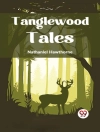Robert W. Chambers’ ‘The Restless Sex’ intricately weaves together themes of desire, identity, and societal constraints through a collection of interconnected stories that capture the zeitgeist of the early 20th century. Rich in symbolism and lyrical prose, Chambers employs a keen psychological depth to explore the tumultuous emotions of his characters, often drawing on the modernist literary movement that sought to reflect the complexities of contemporary life. His exploration of the intersection between eroticism and intellect serves to challenge the prevailing norms of masculinity and femininity during this period, offering readers a thought-provoking glimpse into the era’s evolving moral landscape. Chambers, an influential figure in both the Naturalist and Decadent literary movements, was known for his adept blending of beauty and melancholy in his writing. His personal experiences and societal observations of a rapidly changing world, characterized by shifting gender roles and emerging liberation movements, likely informed his commitment to portraying the sexual politics of his time. Chambers’ works often hinted at an underlying tension between traditional values and the burgeoning quest for personal freedom, making this collection resonate with readers seeking to understand the nuances of human attraction and conflict. I wholeheartedly recommend ‘The Restless Sex’ to readers who are intrigued by the interplay of sexuality and societal constructs. Chambers’ profound insights and masterful narrative style not only illuminate the intricacies of human relationships but also invite a critical examination of the cultural forces that shape them. This collection remains a significant contribution to the study of early modern literature, making it essential for anyone interested in the evolution of thought surrounding gender and desire.
عن المؤلف
Robert William Chambers (1865-1933) was a prolific American author, best known for his book of short stories titled ‘The King in Yellow’ (1895), which greatly influenced the horror fiction genre and left an indelible mark on the field of weird fiction. Born in Brooklyn, New York, Chambers pursued art in Paris at the École des Beaux-Arts and the Académie Julian before turning to writing. He achieved great success with his early work in the weird and supernatural but later shifted towards romantic fiction, which was prevalent in his book ‘The Restless Sex’ (1918). This novel reflects Chambers’ adeptness at capturing the shifting social mores and the complexities of love and relationships in the early 20th century. Over his career, he wrote more than 70 novels, covering various genres from fantasy and horror to romance and historical fiction, showcasing remarkable versatility. His literary style often weaved rich descriptions, romanticism, and an undercurrent of the eerie and macabre, resonating with readers of his time. Although his later works did not reach the same critical acclaim as his earlier fantastical tales, Chambers’ contributions to literature, particularly in shaping supernatural fiction, ensure his lasting legacy within the literary canon.












